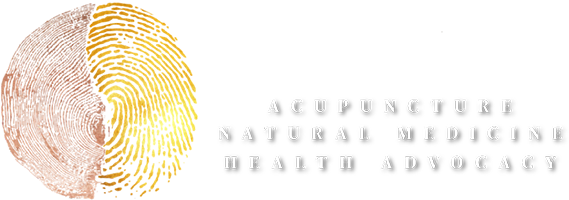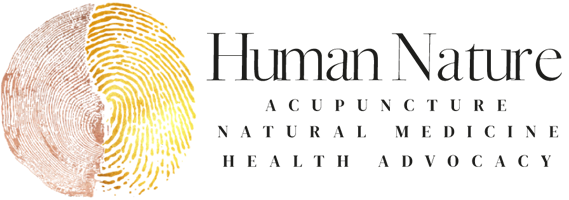
Bess Dallal
LAc, MS
Acupuncture & Natural Medicine
Educational Background
Bess Dallal, M.S. LAc is a nationally recognized licensed acupuncturist in the state of Oregon where she is recognized as a primary care provider. Bess has been practicing and studying natural medicine for over 15 years.
She received her Masters in Science from The Academy of Chinese Culture and Health Sciences. Her Bachelors Degree is from the University of Massachusetts, Amherst with an individual concentration in “Healing through the Scientific Arts”. During her medical studies, she received training from a variety of healthcare providers including acupuncturists, naturopathic doctors and yoga teachers in the U.S. and India. She has studied and practiced abdominal massage and Hara Reflex diagnosis for over 10 years. She is trained as a spiritual caregiver and grief counselor with the Zen Hospice Project. Through many different internships and deep curiosity, she has developed her own style as a practitioner with eclectic influence.
As an acupuncturist she has worked in the community clinic setting, with IVF patients at UCSF and other fertility clinics, and in private practice with a focus on complex PTSD and autoimmune diagnosis.
Her yoga training is in Emodyoga. She studied under Patricia Townsend in MA, in Northern India through the Himalayan Health Exchange, and in the Shadow yoga tradition with Andy Matinog.
Practice Areas and Therapeutic Approaches
Bess sees a variety of patients and concerns ranging from pain management, mental health, chronic autoimmune illness, dermatological disease and terminal illness. She also has direct experience in fertility as well as hospice care.
Bess utilizes a functional medicine approach to her patients’ health. Some of the medical therapies used include: acupuncture, moxibustion, cupping, gua sha, tui na, abdominal massage, microneedling, individualized herbal formulations (botanical medicine), detoxification, diet and lifestyle counseling, yoga therapeutics, and utilizing and ordering lab reports as necessary.
Philosophy and Core Practice Values
As a white, Italian-Scottish-mishmash-mut, Bess was hesitant to take on the study of Chinese Medicine because of the risk of appropriation of this already underappreciated medicine. Having a strong foundation in the biological sciences, she considered going down the allopathic route and applying a holistic framework to it. But this approach to medicine simply did not feel like a compatible fit for how she believed she could be of the most service to people. At the end of the day she chose Chinese Medicine most importantly for the growing awareness and accessibility it is gaining as she is committed to contributing to improved equity in healthcare. She loves and believes strongly in her specific modality, but also believes the type of medicine used in someone’s healing process is of less importance than the experience of the medicinal process itself. She believes that any medicine can be effective, whether it’s emergency medicine or any specialization, as long as the practitioner-patient relationship is strong and fulfilling the current needs of the patient, namely that a strong sense of trust and safety is established. Working as an integrative team across specializations is of high priority for Bess to enhance each patient’s coordination of care. Amidst the buzz of our daily lives, she truly believes we all need a team of people that supports us in living our own unique version of a healthy life.
Bess believes that medicine is an art that is always evolving in a broader historical, cultural, political, and environmental context. She aims to preserve the deep roots of Chinese and natural medicine while maintaining flexibility in order to find the most effective treatments for each unique person. She stresses the importance of defining clear roles in the practitioner-patient relationship, empowering the patient to take charge of their own health. As a health practitioner, Bess feels it is her responsibility to find creative health resources for her patients that are life-affirming, utilizing tools that restore the patient’s inherent self-regulating balance and setting goals that are realistic to sustain and comply with.
Personal
Bess lives in Oregon City, Oregon with her partner-in-crime Amir, miracle-daughter Miele and fluffy shih-tzu Brandy. They spend their free time making stuff, exploring the Pacific Northwest, listening to music, gardening, wandering around and relaxing. She has traveled through Asia, the Middle East, Central America and Europe which has greatly influenced her perspective on the many ways that people can find health and satisfaction.
About Chinese Medicine
The foundation of natural medicine, Chinese Medicine and many useful theoretical frameworks comes from dialectics like yin and yang, form and function, shadows and light, 0 and 1. These dialectics form the foundation for which we seek a balance through the life affirming tension of elements in their seemingly opposite characteristics. In natural medicine, the idea of the opposites are always keeping each other in check. Without darkness, there can’t be light; yet with too much darkness, there’s not enough light and vice versa. These are tools for thinking about health as both relative and dynamic. Based on the ancient roots of Chinese Medicine - Yin and Yang - these concepts are universally applicable in the observation of life.
These ideas easily apply as a simple framework for helping people find their own inherent balance within their own unique culture and context.
Our culture often focuses either too heavily on the “form” of health - how the body looks and what its measurements are OR too heavily on the “function” of health - how much we are able to do or not do. We believe that if we can listen deeply to the needs of a person, and go into more detail and subtlety of a person’s unique experience of life - and treat that responsibly - that the relationship of their form and function will find it’s way into a fluid, more adaptable balance and way of being in the world. They can then reclaim their innate internal humanness - in relationship and response to the world around them, with the understanding that they are part of this bigger thing: nature.
FAQ
Acupuncture points are believed to stimulate the central nervous system. This, in turn, releases chemicals into the muscles, spinal cord, and brain. These biochemical changes may stimulate the body's natural healing abilities and promote physical and emotional well-being.
There are tens of thousands of scientific research articles published in English alone on Chinese medicine, including randomized controlled experiments and studies using functional imaging methods such as MRIs. Some studies examine how acupuncture alters the body’s biochemistry and the release of neurotransmitters and hormones. However, this is an area where the “Western” or biomedical system of medicine is playing catch-up in trying to understand how acupuncture works. Most importantly we know that acupuncture works.
At its most basic, acupuncture is the insertion of hair- thin, sterile needles into the skin. The patient might experience a pinching sensation at insertion or nothing at all, possibly followed by feelings of tingling, warmth, pressure or fullness. Some patients may feel these sensations move around the body. Five to fifteen needles are inserted for 25-35 minutes, dependent on the conditions treated. Needles may be heated during the treatment or mild electric current may be applied to them. Some people report acupuncture makes them feel energized. Others say they feel relaxed. Still others simply fall into a deep sleep or dream state.
Improper placement of the needle can cause pain during treatment. Needles must be sterilized to prevent infection. That is why it is important to seek treatment from a qualified acupuncture practitioner. The FDA regulates acupuncture needles just as it does other medical devices under good manufacturing practices and single-use standards of sterility.
Instead of needles, other forms of stimulation are sometimes used over the acupuncture points, including:
- Heat (moxibustion)
- Pressure (acupressure)
- Friction
- Suction (cupping)
- Impulses of electromagnetic energy
Like all medical treatments, it varies with each patient. Many acute conditions, such as catching a cold or spraining an ankle, tend to respond well and quickly to prompt treatment (1 - 12 treatments), while chronic or longer-term patterns (PMS, PTSD, eczema) may take longer to resolve. Over the course of treatment, however, you should see an overall improvement in your health while your chief focus is addressed. In an ideal world, everyone could get acupuncture once a week for overall wellness, regardless of any complaints. I like to think of the needles as little flashlights that shed light into your body’s own innate intelligence. If acupuncture is a health modality that resonates with you, then you may want to integrate it into your regular health routine - coming for treatments weekly or monthly. In our ideal world, everyone would get acupuncture, and a number of other supportive treatments each week regardless of their health condition to prevent disease and maintain health. We will discuss a treatment plan after your first visit.
When a qualified professional performs acupuncture, it has very few complications or side effects.
The U.S. Food and Drug Administration (FDA) regulates acupuncture needles. The agency requires that all needles be steel, solid, sterile, nontoxic and properly labeled. Only qualified professionals may use acupuncture needles. After one use, practitioners throw the needles away.
Receiving acupuncture from unqualified practitioners can be harmful. An untrained provider or one who uses non sterile needles can cause infections, organ punctures and central nervous system injuries.


